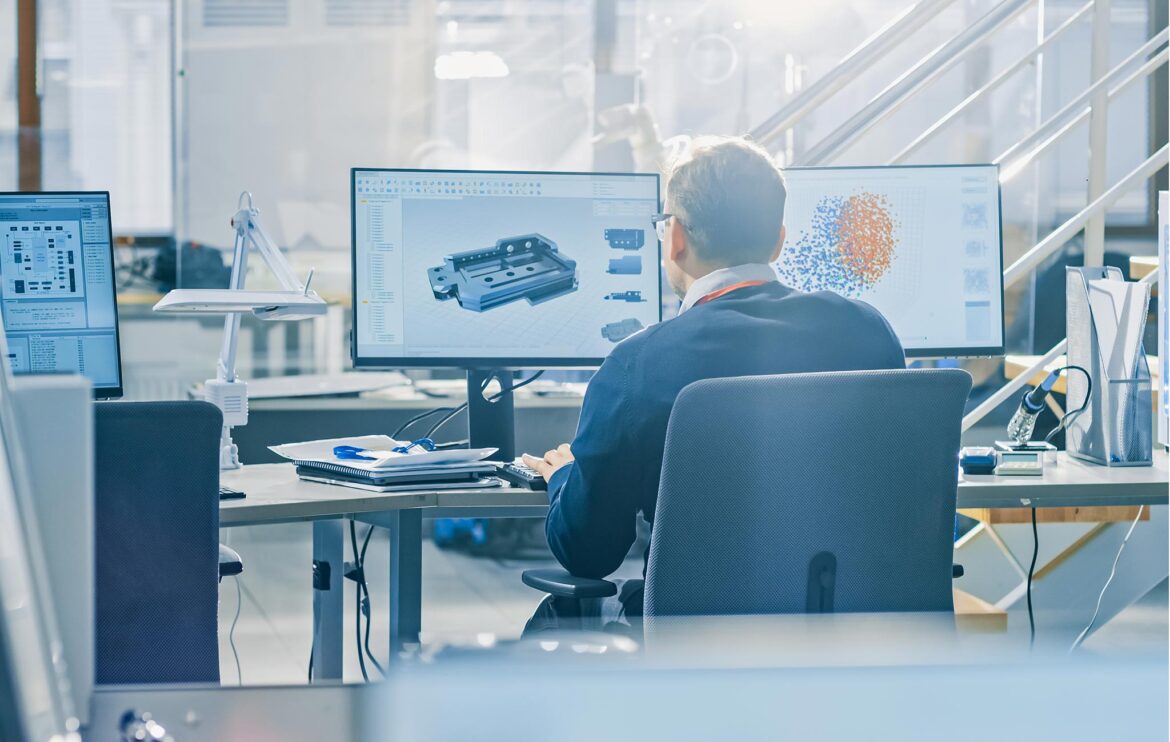Design for Manufacturing or Design for Manufacturability (DFM) is the process of designing a product or system with an awareness of manufacturability, whether it is the manufacturing of components, subassemblies, and assemblies, or the production of parts in an assembly line for the best possible optimisation. Hence DFM is all about making products manufacturable, i.e., minimizing the resources required to manufacture them and minimizing the time required to manufacture them. With the growing number of products in the market skilled people in DFM are in high demand in the market. While you could enrol in reliable manufacturing design courses in Delhi or Mumbai in this article we will give you a brief introduction to DFM so that you are better prepared for when you attend your lectures
The process of DFM involves a wide range of activities, including those related to conceptual design and analysis, engineering design and analysis, cost analysis, production planning and scheduling, material specification and procurement planning.
Principles and methodologies of DFM
The design for the manufacturing process provides the basis for developing a product that meets the customer’s needs. This process is a systematic approach to developing products, services and processes that are designed to meet specified customer requirements.
The design for manufacturing (DFM) process involves planning, organizing and coordinating the activities that are necessary to develop a product in order to meet customer requirements. The DFM process begins with a clear statement of customer requirements by means of market research, analysis and interpretation of results. It then proceeds through a series of steps involving the generation of new ideas, analysis and refinement of designs, evaluation and selection of processes, development of engineering drawings, manufacture and final inspection.
In addition to the DFM process being used in product development projects involving complex systems integration or new technology applications (such as computer-aided design), it is also applied to more traditional mechanical design projects such as single-part assemblies or multi-component assemblies where there are multiple suppliers for components or sub-assemblies.
Advantages of DFM
- One of the biggest advantages of DFM is that it can help you to reduce your production costs. By reducing the number of defects in a product, you can save money on the materials used and on labour that would have been spent on correcting these defects later. When done properly, DFM can help you to save up to 80% of your production costs.
- Another advantage of DFM is that it helps you to identify problems early on in the manufacturing process. Because they are usually introduced while manufacturing already exists, they tend to be more difficult to detect at this stage. However, if you use DFM techniques, such as supplier audits or statistical process control (SPC), you will be able to spot problems before they become bigger issues for your company.
- Another benefit of using DFM techniques is that it helps you to make sure that your products meet all the necessary requirements for use by consumers or other end users. It also helps you to make sure that your products will be safe for people who use them – a very important aspect of any business! The best way to ensure that your products are produced at high quality is to have a well-planned design process before any production begins. A good DFM will ensure that every part of your product is designed correctly and manufactured in such a way that it meets all of its specifications. This will ensure that when it goes into production, it does so with as few issues as possible and without any waste or rework being required during its manufacture.
- A DFM can be used to improve the time-to-market of a product. By reducing the number of design changes, you can reduce the amount of time it takes for your product to be released to the market. This will help you reduce costs in terms of development, manufacturing and marketing. This is why the best manufacturing design courses in Pune or Chennai always have a capstone project where you can see this and other benefits of DFM for yourself.


